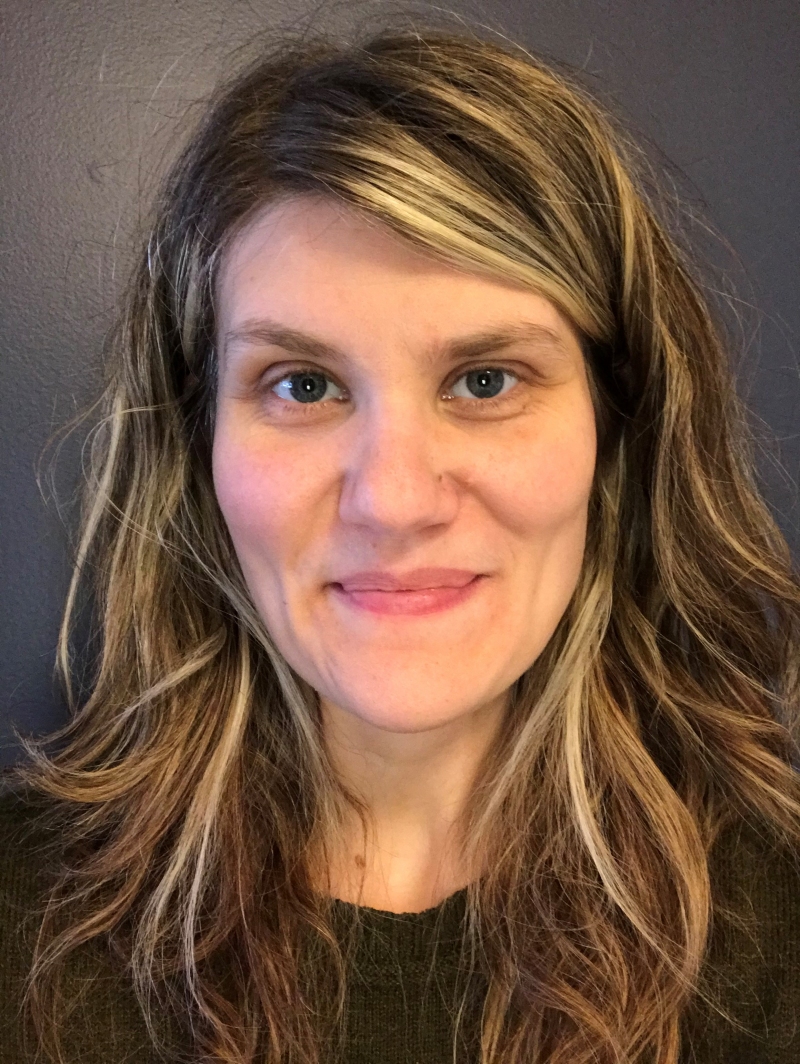
CMU alumna wins international writing competition with short story
 Katie Doke Sawatzky won NYC Midnights' second annual 250-word Microfiction Challenge with her short story, "The bundle".
Katie Doke Sawatzky won NYC Midnights' second annual 250-word Microfiction Challenge with her short story, "The bundle".
With only 24 hours to write a short story from concept to completion, some writers might buckle under the pressure. But not Katie Doke Sawatzky (CMU '10). The CMU alumna won NYC Midnight's second annual 250-word Microfiction Challenge, chosen for first place out of more than 5,400 other contestants from around the world.
Doke Sawatzky, who completed an English degree at CMU, now lives in Regina, SK with her partner and their two children. She works as a freelance journalist and communications coordinator for Mennonite Church Canada.
This wasn't her first time entering one of NYC Midnight's competitions. The organization strives to encourage the creativity and talent of storytellers through the hundreds of writing competitions they have been hosting since 2002, from short stories to screenwriting to microfiction. She has participated in the 100-word and 1,000-word fiction challenges, but never proceeded past the second round.
But this year was a different story. She made it through all three rounds of the competition, winning with her final story, "The bundle." Each round, contestants had to write a different 250-word story in just 24 hours, based on a specific genre, word, and action.
"The bundle" is a tragic tale that begins with a midwife taking a baby who has died right after being born. With the implication that the family has already dealt with this kind of grief before, the midwife is trying to hide the child from the father. But she encounters him while she's leaving his property, holding the baby.
Doke Sawatzky admits she doesn't know why she wrote such a heartbreaking scene. "The prompts, really they're a launching off point, and then you really don't know where you're going to end up," she says.
She doesn't put her life on hold or stay up all night on the day of the contest, which makes the window of time even smaller. After getting the prompts at around 10:00 PM, she goes to sleep. She thinks it over the next morning, gets some ideas down on paper by afternoon, then writes in the evening.
Instead of causing panic, the deadline pressure helps her develop the story. "It's kind of really great because you're forced to act on your ideas."
But it's only recently that the writer has begun experimenting with fiction. She started practicing in the fall, getting up early every morning and free writing. It still feels new, which made the win even more shocking. "I guess it is really encouraging and affirming for sure. But it also makes it really hard to believe."
Doke Sawatzky has been writing nonfiction for much longer. She got into journalism by writing and editing for Geez, Canadian Mennonite, and Rhubarb. She honed these skills through a Master of Journalism from the University of Regina (while raising two young children), for which she created the Prairie Commons Project, a multimedia research project on the state of native prairie in Saskatchewan. She is currently doing freelance work for Horizons, Briarpatch, and the University of Regina, to name a few.
Maybe it's due to pandemic induced restlessness, but fiction writing is not the only new thing Doke Sawatzky is trying these days. In March, she published the first issue of Nine Years, a zine of stories and art that "expresses the significance of observations in places, minds, and moments. It embodies time. It is proof of friendship."
Nine years ago, while still in Winnipeg, she was eagerly planning a feminist zine with friends from CMU. But then her family moved to BC, had children, and everything changed. Now, almost a decade later, she's returned to the idea. "I was feeling that itch I guess, so I decided to write letters to some of the original people in those meetings... Who writes letters anymore?" she laughs.
She received letters, texts, and emails in return, which she transformed into this creative collection of moments captured slowly and intentionally, pushing against the driving pace of social media.
"It feels more like a personal expression right now rather than a magazine that's out there to change the world or something like that. But I hope to do more issues."
Find more of Katie Doke Sawatzky's work at katiedokesawatzky.com.
Printed from: media.cmu.ca/alumni-katie-doke-sawatzky-wins-international-writing-competition